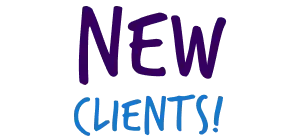MIN READ
Need money now?
Why wait for your tax refund when you could get money today!. Reserve your spot to apply for a Tax Refund Advance loan.
Find a locationKey takeaways
- The One Big Beautiful Bill Act (OBBBA) introduced the No Tax on Tips provision, which is a temporary deduction that allows eligible tipped workers, including self-employed workers, to write off up to $25,000 in tips.
- The OBBBA made the Qualified Business Income (QBI) deduction permanent. It was previously set to expire after 2025.
- The OBBBA made updates to the State and Local Tax (SALT) deduction, giving eligible self-employed workers an opportunity to write off more of their state and local tax payments on their federal returns.
- The OBBBA reverses course on recent changes to Form 1099-K and restores the original reporting threshold to more than $20,000 in payments and 200 transactions in a year.
- The OBBBA raises the reporting threshold for Form 1099-MISC to $2,000 from $600, starting in tax year 2026.
- Under the OBBBA, the reporting threshold for Form 1099-NEC jumps to $2,000 from $600, starting in 2026, with annual inflation adjustments beginning in 2027.
The One Big Beautiful Bill Act has brought many new tax changes that impact freelancers, independent contractors, and other self-employed workers. Learn about the changes, and how to make the most of the 2025 tax season for your business.
Income tax reduction: No Tax on Tips
The One Big Beautiful Bill Act (OBBBA) introduced a new deduction, commonly referred to as No Tax on Tips. It allows eligible tipped workers (including self-employed workers) to write off up to $25,000 in tips from their taxable income.
What you need to know about No Tax on Tips
- The new provision works by allowing you to write off up to $25,000 in tips on your federal return.
- This write-off is not available if your filing status is married filing separately.
- The IRS defines qualified tips as “voluntary cash or charged tips received from customers or through tip sharing.”
- The full deduction is available for single filers with an adjusted gross income (AGI) of less than $150,000 ($300,00 for joint filers), then starts being phased out.
- This is a temporary deduction available from tax years 2025 through 2028.
- As a self-employed worker, you can only deduct tip-based work up to the amount of your net income.
- The deduction does not apply to self-employment tax, which covers Medicare and Social Security tax, nor does it apply to state tax.
- The deduction is available to eligible taxpayers, regardless of whether they itemize or take the standard deduction.
- The IRS has released a preliminary list of occupations qualified for the deduction. Not all jobs qualify. Workers with jobs that are considered specified service trade or business (SSTB), which includes jobs in law, health care, financial services, and the performing arts, do not qualify for the deduction.
QBI deduction: 20% Qualified Business Income deduction has been made permanent
The OBBBA made the Qualified Business Income (QBI) deduction (sometimes called the “pass-through deduction”) permanent. It was previously set to expire after 2025.
This deduction allows many small-business owners and self-employed workers to deduct up to 20% of their QBI from their taxable income.
What you need to know about the QBI deduction
- The deduction is available to small-business owners who are in sole proprietorships, partnerships, S corporations, and certain trusts and estates.
- The full 20% deduction is available for single filers with an AGI under $200,000 ($400,000 for joint filers) and starts phasing out from there. For SSTBs, the write-off is no longer available after these limits.
- The deduction is available to eligible taxpayers regardless of whether you itemize or take the standard deduction.
- The deduction is calculated based on your QBI, which includes your net profit after expenses, not your gross receipts.
- Starting in 2026, a minimum $400 QBI deduction is guaranteed if you materially participate in an active trade or business and have at least $1,000 of QBI.
Because the QBI deduction is now permanent, it allows small -business owners to plan long term to maximize the benefit. This may involve adjusting your wages, retirement plan contributions, or other business expenses.
SALT deduction changes in the One Big Beautiful Bill Act
The OBBBA made updates to the State and Local Tax (SALT) deduction, giving eligible self-employed workers a chance to write off more of their state and local tax payments on their federal returns.
What you need to know about the SALT Deduction
- The new cap for the deduction is now $40,000 ($20,000 if you’re married filing separately) up from $10,000. This new limit is set to increase by 1% each year through 2029 and reverts back to $10,000 in 2030.
- Unlike the other new tax provisions we’ve discussed so far, you must itemize deductions to take advantage of the SALT deduction and its higher limit.
- The full deduction is available for taxpayers with an AGI of $250,000 or less ($500,000 for those filing jointly) and reverts to the $10,000 at an AGI of $300,000 or higher ($600,000 if filing jointly).
- In addition to writing off estimated state income tax payments, you can also use the SALT deduction to write off property taxes on your home, vehicle, or boat.
1099-K threshold Increase in the One Big Beautiful Bill Act (OBBBA)
The OBBBA reverses course on recent changes to Form 1099-K and restores the original reporting threshold to more than $20,000 in payments and 200 transactions in a year.
Form 1099-K is used to report payments you receive through payment apps, like PayPal, Venmo, Apple Pay, or Zelle, and online marketplaces. From 2011 through 2023, the $20,000-and-200-transaction limit was the standard. The American Rescue Plan Act of 2021 dropped the threshold to $600 and removed the transaction count. However, the IRS delayed the change several times and had planned to phase it in gradually, starting at $5,000 for 2024, $2,500 for 2025, and finally $600 beginning in 2026.
The OBBBA eliminates that phase-in entirely and keeps the higher $20,000-and-200-transactions threshold in place. This means far fewer casual sellers or people splitting expenses through payment apps will receive 1099-K forms beginning in 2025. Keep in mind that you still must report all taxable income, even if you don’t receive a form.
1099-MISC thresholds changes in One Big Beautiful Bill Act
The OBBBA raises the reporting threshold for Form 1099-MISC to $2,000 from $600 starting in tax year 2026. This is the first major update to the 1099-MISC threshold in decades and is intended to reduce paperwork for both payors and recipients.
For self-employed workers and small-business owners, Form 1099-MISC reports income from various sources. This can include rent you’ve received, prizes or awards you’ve won, or certain legal settlements. Under the new rules, beginning in 2027, the $2,000 threshold will be adjusted for inflation annually.
This means fewer 1099-MISC forms showing up for smaller payments. Keep in mind that you still must report all taxable income, even if you don’t receive a form. The change simply reduces paperwork and streamlines reporting for both you and the businesses that pay you.
1099-NEC threshold changes in One Big Beautiful Bill Act (OBBBA)
Under OBBBA, the reporting threshold for Form 1099-NEC jumps to $2,000 from $600 starting in 2026, with annual inflation adjustments beginning in 2027. If you’re a freelancer, consultant, or independent contractor, Form 1099-NEC reports income you’ve earned that has not been reported on form W-2.
This change means that clients won’t send you a 1099-NEC for small projects under $2,000, but you’re still responsible for reporting that income on your tax return.
Work with a tax expert to navigate changes from the One Big Beautiful Bill
The OBBBA has introduced many new tax changes for self-employed workers, including freelancers, independent contractors, and anyone with a side gig. Don’t let these changes catch you off guard, and don’t miss a single credit, deduction, or dollar you’re owed. Work with the Tax Pros who can help you get your taxes right for 2025. Book your appointment today.
*This content is for general informational purposes only. It is not intended to be comprehensive and should not be construed as professional tax or financial advice for any specific individual tax situation. Taxpayers should always consult a qualified professional for individual guidance. This information constitutes a solicitation under the Treasury Department's Circular 230. Most offices are independently owned and operated.





